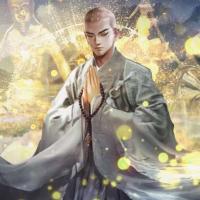圣忠居士博客
佛法知识分享│在线学佛念佛网
What is the difference between "Yin body" and "ghost"?

Because Buddhism says that reincarnation does not have a physical entity, what exactly is reincarnation? Buddha says it is karma, and due to the pull of karma, the combination of causes and conditions gives birth to the cycle of sentient beings.
Taoism believes that the human soul wanders between heaven and earth, therefore, before the earth soul is reincarnated, the human soul, also known as the soul, will wander around. According to the teachings of Shakyamuni Buddha, humans do not have a physical entity of reincarnation. However, hundreds of years after the Buddha's death, some Buddhist disciples of certain sects believe that sentient beings exist as "intermediate beings" before their bodies are lost and reincarnated again, also known as "intermediate yin bodies".
Therefore, we know that the middle yin body refers to the existence form of sentient beings between the moment of death and the moment of life.

From this, we know that there is a difference between the Yin body and ghosts, and their difference lies in:
1. Different properties
The 'Zhongyin body' is a state of existence for sentient beings, while the 'ghost' is a karmic retribution. Buddha said that all sentient beings have three bodies: Dharma body, incarnation, and retribution body. All sentient beings have Dharma body, and only with divine power can they have incarnation. If there is karma, there is retribution body. When karma is fully repaid, the three bodies become one.
Ghosts, also known as' hungry ghosts', have a middle yin body, but the middle yin body is not a 'hungry ghost'.
2. Suffering is different
The 'middle yin body' does not suffer, or suffers very lightly. Buddhism believes that suffering is the act of karmic retribution. When reincarnation occurs in the six realms, karmic retribution leads to suffering. Hungry ghosts will suffer greatly when they report themselves, and no matter how much they eat, they always feel very hungry. Just suffering from hunger torment.
3. Different supernatural powers
When the "Zhongyin Body" exists, its divine power is at ease, and it can freely reach its desired place. It can walk through walls and traverse mountains, rivers, and the earth without being obstructed. Extremely active, its movement direction depends on past karma and habits.
However, the supernatural powers of the ghost body are limited, and they cannot escape from the ghost path, nor can they protect themselves from hunger.
4. Different durations of existence
The ghost body is a manifestation, with a duration that can be short or long, ranging from a moment to trillions of years. But the duration of the middle yin body is relatively short, with a maximum of no more than 49 days.
本文地址:
http://www.candra.cn/dayi/2543.html
版权说明:
转载请注明出处!
相关文章
评论留言
取消回复



